
OR
Opinion
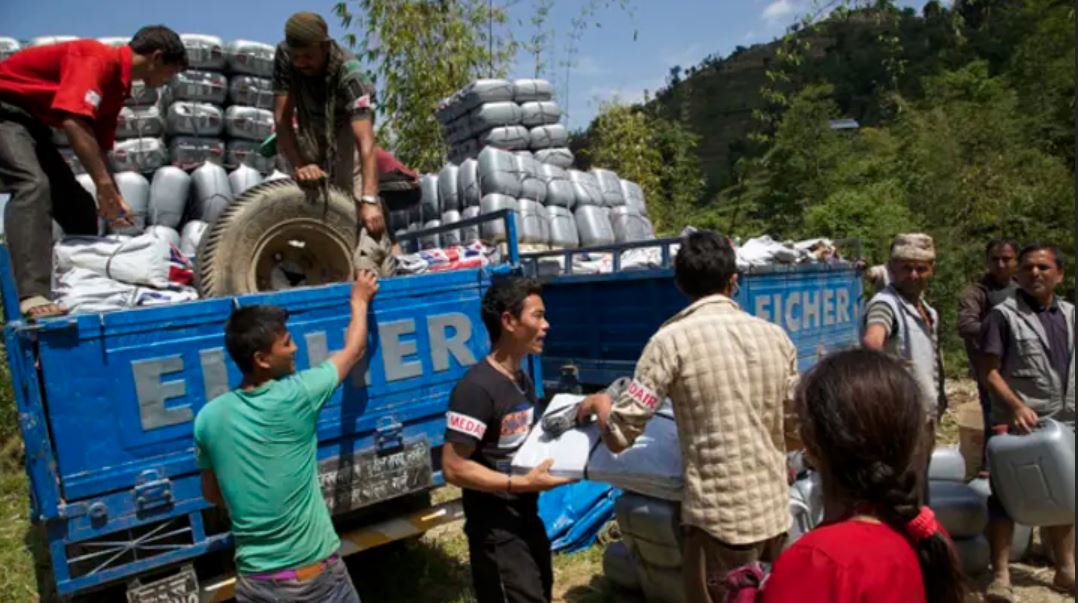
More from Author
- Why Federalism has Become Risky for Nepalese Democracy
- Hunger is a Serious Problem in South Asia
- Tourism Can Be A Catalyst For Change in Karnali Province
- Nepal’s Southern Border Has Become An Open Regional Crossroads
- Opening a new gateway for Kailash Mansarovar Yatra through Nepalgunj-GunshaNagari flight
The organization of civil society in Nepal began with the Arya Samaj in 1909 to awaken the people from blind faith, prejudice and conservative thinking as well as to abolish child marriage, promote widow remarriage and initiate social reforms.
The social welfare service in Nepal is very mature, as society itself. The centuries old social entities such as Guthi (trust), Parma (labor exchange system), Dhikur (saving/ credit), etc. are still significant social institutions. The number is believed to be 200,000 in Nepal. Due to their tiny nature and dispersed in an unorganized way their roles have been under-explored.
Once they were well organized, self-sustained and considered as agents of social change with a strong root to serve and support the poor and the vulnerable in society. Till date some remains of these entities are prevalent in our society, which has now been replaced by the modern external assisted (Non Governmental Organizations) NGOs.
Currently, NGOs have become important institutional actors for mobilizing community assets, motivating people, and implementing social welfare programs. The autonomy of civil society, such as trade unions, human rights organizations, student unions, teachers’ associations, women’s groups, environmental advocates, professional organizations, etc are crucial for breaking the domination of authority and wealth and enforcing a pluralist sense of justice.
The Social Welfare Council Act, 1992 was enacted in Nepal, replacing the then SSNCC Act, 1977. According to this act, the Social Welfare Council (SWC) was constituted as a governmental agency to look after the NGO affairs - both external assisted and traditional self-supported.
Currently, the number of NGOs in Nepal is around 40,000 as compared to 220 in 1990. In addition, around 204 international NGOs (INGOs) are also working in Nepal. The role of these INGOs has been increasing both in number and volume of activities. They are working in areas such as health and community development, child welfare activities, sanitation, women empowerment, disabled services etc.
The developing countries’ disappointing situation during the 1970s started a discussion on governance, stating the mutual task of various players such as public-sector organizations, private organizations, and the civil society organizations. The term “Non-Governmental Organization” was popularized by the United Nations Charter (Chapter 10, Article 71), which gives a consultative role to organizations that are not part of the structure of government. An International NGO was broadly defined by the UN Economic and Social Commission (ECOSOC) as “any international organization that is not founded by an international treaty.”
During the period of the great earthquake of 2015, national and international NGOs did an excellent job and humanitarian support to people, which were praiseworthy. The remote villages and mountainous region of Nepal, where the government itself cannot go to all remote and deprived areas proportionally, the NGOs easily entered and penetrated in such locations, most of them performing satisfactorily.
According to the statistics of the finance ministry, around 20 percent of the aid Nepal receives during a year was routed through NGOs and INGOs. Their annual contribution to the development sector is around 7 to 9 percent.
Many INGOs in Nepal are performing satisfactorily according to the agreement with the government. However, some have been subject to controversies due to their poor and controversial performances.
Some experts say that the I-NGOs have weakened the social, political, religious and governance structures from entering different formal and informal organizations and on the other hand they are contributing least to real local economic development activities. They have been also criticized for corruption, non-transparency and their readymade programs and projects with negligible participation of local stakeholders during the plan formulation and its implementation.
The mushrooming number of NGOs has been accused of damaging the public sector instead of promoting equity and alleviating poverty as they are being designed and used as extensions of the normal foreign-policy instruments of donor countries. In addition, they are accused of creating their own expensive structures in districts, instead of encouraging local communities to perform. The issue of good governance and transparency of the donor community were raised several times. It is found that INGOs and donor communities issue directives of their respective country and organizations instead of the needs of the government and people of Nepal.
Most INGOs are from western countries, whose center point of program is advocacy, awareness and capacity building while the INGOs from Asia and the Pacific comparatively prefer to support community and economic developmental activities. As now Nepal is capable of implementing programs itself, it does not need INGO support for programs on capacity building, awareness, advocacy at the local level; rather it needs solid infrastructural development.
Once the Ministry of Home Affairs proposed to regulate and control INGOs in Nepal, through a “National Integrity Policy''. However, it created a big hue and cry among donors and the government put a stop to it after strong criticism from the INGOs.
There is no doubt that INGOs are providing employment to the people with attractive salaries and perks and benefits. They are also providing monetary, material and capacity building support to local NGOs. To receive considerable support from the INGOs, even some government authorities, social and political elites are encouraged to register NGOs in the name of their family members as well as in the name of well-wishers.
However, the impression of I-NGOs is not very positive. Even Nepal’s neighbors – India and China - have also concerns with the activities of some INGOs in Nepal. India has long been sensitive about these agencies’ views on India’s internal issue and increasing religious conversion in Nepal and China’s sensitivities lie in their access to Tibetan refugees.
In February 2018, after federal and provincial elections in Nepal, the European Union Election Observers Team’s recommendation to remove privileged castes and groups from the list of beneficiaries in proportional representation to elective bodies and some other recommendations were direct interference in Nepal’s internal affairs, and in response, Nepal also issued a stern warning against proselytizing.
In addition, the Nepal government asked the United Nations (UN) to close its Department of Political Affairs (DPA) unit based in Kathmandu. The UN political unit had been in operation as the residual office of the United Nations Mission in Nepal (UNMIN) after the UNMIN's exit from the country since January 2011.
As a growing controversy and criticism, Nepal’s parliament also refused to accept budgetary support from donors for legislative business; previously it was accepting financial support from international donors in the name of empowerment and skill development of parliamentarians. Moreover, the relief package given to earthquake victims by some donors and NGOs also carried Bible and related literature and that made the Nepali authorities unhappy.
Answering the criticism some I-NGOs say that the basic reason behind their criticism may be that they lack publicity about the good practices they generate. Another reason might be their inability to disseminate the information widely.
To be accountable to society, I-NGOs should take the questions raised by the government and society seriously and do their own evaluation on a regular basis. Unless the issues of transparency and accountability are implemented sternly, nothing can change.
People working in the I-NGOs agree that there is a possibility of anomalies in some organizations, but it is not true that all of them are bad. Some INGOs say that only a few people understand their positive role and contributions. Most government officials, media, and politicians interpret the INGOs in a negative manner without understanding the truth.
You May Like This

Federalism: learning by doing
Issues have emerged regarding effective implementation of federalism. But there is a long way to go and these issues can... Read More...
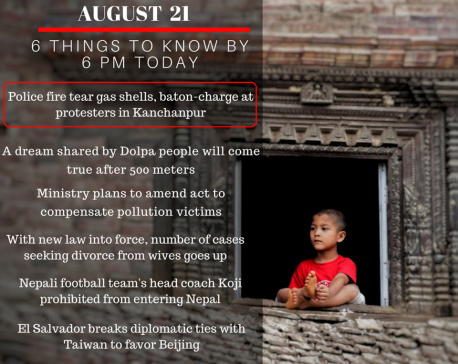
Aug 21: 6 things to know by 6 PM
Your daily dose of missed important news of the day. ... Read More...
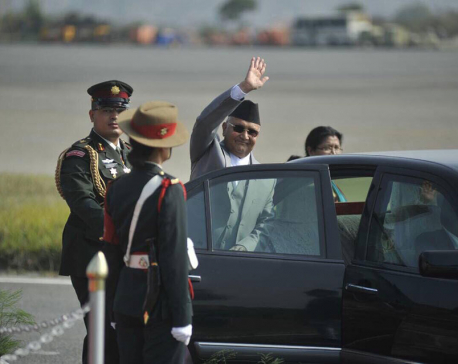
What Nepal needs is India's friendship and support for growth: Nepal PM Oli
In an exclusive interview to The Hindu, Mr. Oli says the bitterness of past relations have been put behind them,... Read More...


Just In
- 70 community and national forests affected by fire in Parbat till Wednesday
- NEPSE loses 3.24 points, while daily turnover inclines to Rs 2.36 billion
- Pak Embassy awards scholarships to 180 Nepali students
- President Paudel approves mobilization of army personnel for by-elections security
- Bhajang and Ilam by-elections: 69 polling stations classified as ‘highly sensitive’
- Karnali CM Kandel secures vote of confidence
- National Youth Scientists Conference to be organized in Surkhet
- Rautahat traders call for extended night market hours amid summer heat
















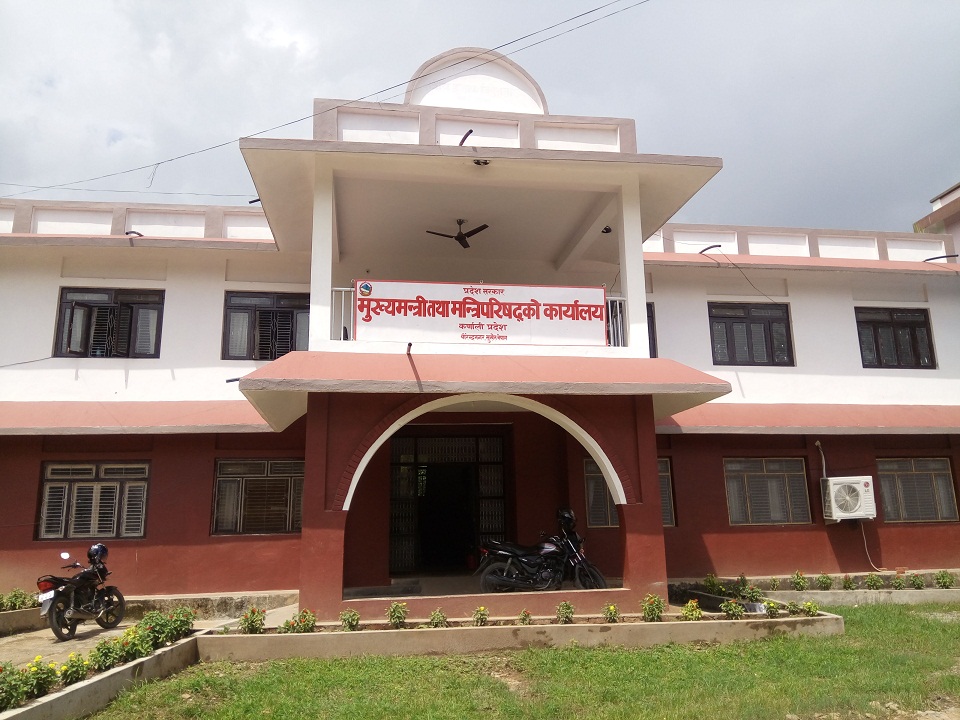
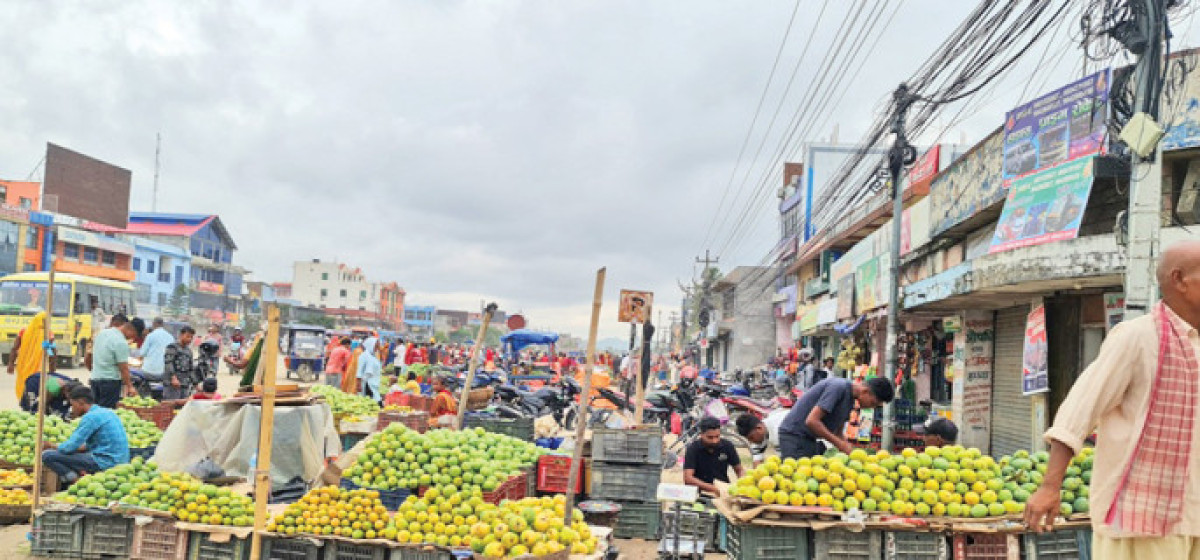
Leave A Comment